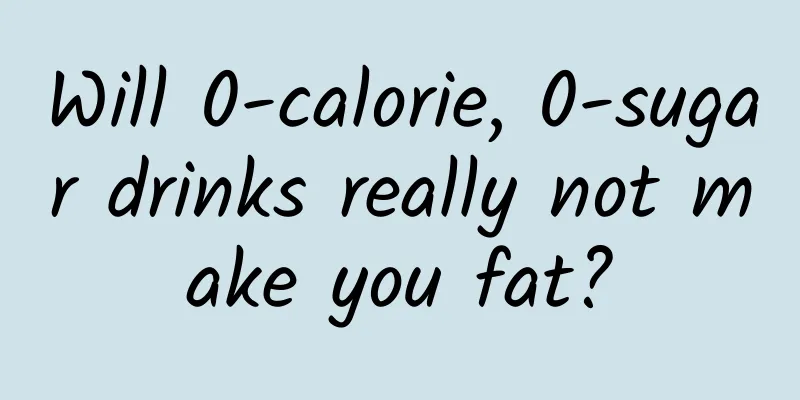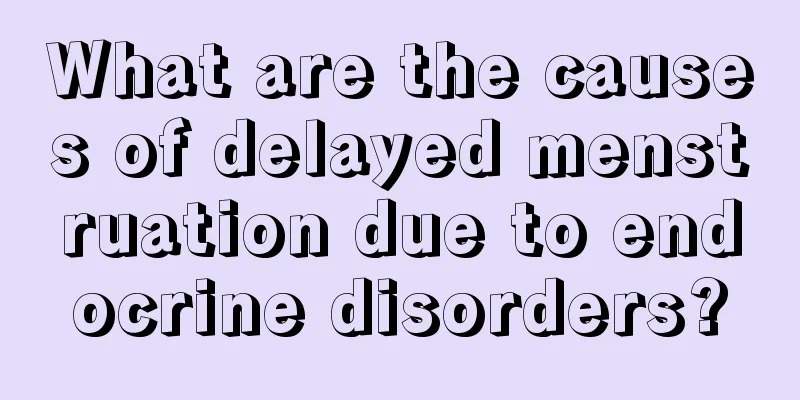Will 0-calorie, 0-sugar drinks really not make you fat?

|
Low sugar, low calories It is the dietary pursuit of many young people Therefore, "0 sugar" has become a label for merchants to sell products. But these 0 sugar 0 calorie foods are really Doesn't contain sugar? Recently, a certain beverage has caused heated discussion among netizens because of its product labels of "0 sucrose" and "0 sugar". In fact, "0 sucrose" does not mean "0 sugar", but most consumers do not distinguish between these two concepts. Today we will study: What is the difference between "0 sucrose" and "0 sugar"? Can "0 sugar" foods help you lose weight? How to choose relatively healthy sugar-free foods? 0 sucrose & 0 sugar Human life activities cannot be separated from energy, which is converted from protein, fat and carbohydrates in the diet, and carbohydrates are usually called sugars. Generally speaking, carbohydrates can be divided into sugars (such as monosaccharides, disaccharides and sugar alcohols), oligosaccharides (such as oligofructose) and polysaccharides (such as starch and glycogen). The sugar that people often talk about and consume in large quantities in daily life mainly refers to sucrose (disaccharide). That is to say, 0 sucrose is not equivalent to 0 sugar, but 0 sugar may be 0 sucrose . This is because the disaccharides with nutritional significance include lactose, sucrose and maltose. After sucrose enters our body, it can be quickly hydrolyzed into monosaccharides (a form that can be absorbed by the human body) under the action of digestive enzymes and enter the blood. These monosaccharides will be stored in the liver and muscles in the form of glycogen for the body's blood sugar regulation, and the excess will be converted into fat. Therefore, long-term excessive intake of sugar will not only increase the risk of being overweight or obese, but also induce a variety of chronic diseases , such as diabetes. my country's Dietary Guidelines (2016 edition) recommends that daily sugar intake should not exceed 50g, and it is best to control it within 25g. Can “0 sugar” help you lose weight? Data shows that nearly 60% of Chinese consumers have purchased sugar-free beverages, and sales in 2019 increased by more than 10% year-on-year, far higher than the overall growth rate of beverages. But sugar-free does not mean true "0 sugar", but uses sweeteners to replace sucrose, which is dozens or even hundreds of times sweeter than white sugar. There are two common sweeteners: ▲Natural sweeteners: stevioside, mogroside, xylitol, erythritol, maltitol, etc.; ▲Artificial sweeteners: acesulfame potassium, aspartame, cyclamate, sucralose, saccharin, etc. Some food and beverages claim to have health benefits, but many people actually misunderstand their meaning. For example: ●“0 sucrose” means there are other sugars; ● "Low sugar" means the sugar content is less than 5%; ●“Low fat” means the fat content is less than 1.5%. From the perspective of calorie intake, sugar-free drinks contain very low energy and can indeed be called "zero-calorie" drinks, but people who drink these sweet drinks will still gain weight. Studies have shown that the sweet taste of sweeteners will make people feel like they have eaten sugary food, which in turn stimulates the body to produce insulin, causing blood sugar to drop, making people feel hungry and increasing their appetite. In addition, because drinkers feel that they are "drinking a zero-calorie beverage", they subconsciously indulge themselves in excessive food intake, resulting in excessive calorie intake. Moreover, using sweeteners to replace sugar does not necessarily make food have higher nutritional value. For example, even if cakes and biscuits are sugar-free, they contain a lot of refined starch and fat, and are seriously lacking in vitamins, minerals and dietary fiber . They are not recommended for weight loss. People generally have the following three misunderstandings about "sugar-free foods". Misconception 1: Taking "no sucrose" and "no added sucrose" as "sugar-free" The so-called "0 sucrose yogurt" and "sugar-free biscuits" may actually contain ingredients such as maltose syrup and maltodextrin, which can also increase blood sugar, and are more efficient than sucrose, which is not conducive to blood sugar control. Myth 2: Taking “no added sugar” as “low calorie” Although the product does not contain additional sugar, some food ingredients themselves contain a lot of sugar. Some whole grain biscuits have a rough taste, giving people a psychological suggestion of "health", but in order to improve the taste, a lot of oil is added, which is a high-calorie food. Myth 3: Taking “no added sugar” as “healthy” Sugar-free foods also taste a little sweet because they contain sugar substitutes, including natural sweeteners and artificial sweeteners. Artificial sweeteners are often used because of their low cost, and their safety remains to be explored. How to choose relatively healthy sugar-free foods 1. Choose a regular manufacturer You should choose sugar-free foods produced by regular manufacturers. Relatively speaking, regular manufacturers have standardized production methods and use more accurate ingredients. 2. Look at the ingredient list and nutritional information table When looking at the ingredient list, we should not only check whether there is sucrose content, but also consider whether the food itself contains sugar . For example, sugar-free cakes are made of starch, and starch is essentially sugar, which can be broken down into glucose in the human body. The order of ingredients in the ingredient list is related to the amount added. The more ingredients are added, the higher the order. If the calorie value of the first line reaches about 2000 kilojoules per 100 grams, it is recommended not to choose it. 3. Is there any other added sugar? Although some foods are labeled "sugar-free", the ingredient list contains white sugar or glucose. In fact, sucrose and white sugar are the same thing, just with different names. Others are labeled "dextrin", "maltose", "starch syrup", "corn syrup", etc., all of which are sugars, so you should be careful to distinguish them. 4. Pay attention to the choice of sweeteners If you really want to eat sweets, give priority to processed foods that use natural sweeteners (such as stevia) and sugar alcohols (such as xylitol) as sugar substitutes. In short, when choosing sugar-free foods, you must pay attention to the content on the food label and understand the meaning of the nutritional indicators. Give priority to foods with added sugar alcohols, natural sugar substitutes and functional oligosaccharides, and try to avoid products containing sweeteners such as "saccharin", "cyclamate" and "stevia". |
Recommend
Girls' reproductive organs pictures
Female internal genitalia: anatomical name. A hid...
How to choose a bra cup
We all know that bras come in several sizes, and ...
comScore: Microsoft Windows Phone platform market share in the US rebounds
According to foreign media reports, Business Insi...
What months does the third trimester refer to?
Many mothers often hear about the late pregnancy,...
What does estradiol mean during pregnancy?
During pregnancy, some pregnant women may undergo...
What might be the reasons why my child cannot speak clearly?
Speech is the most important way for humans to co...
Will the fetus stop growing in late pregnancy?
For pregnant women in the late stages of pregnanc...
There are many small buds on the vulva
The growth of many small granulations on the vulv...
How much hcg value can be used to see the gestational sac
When it comes to HCG testing, most women who have...
Early pregnancy reaction is alleviated at 70 days of pregnancy
Is it normal for the early pregnancy reaction to ...
What are the symptoms of blood heat in women?
Many people don’t know what blood heat means. In ...
The harm of sexual intercourse during menstruation to men
Having sex during menstruation does not cause muc...
What are the possible causes of stringy leucorrhea during the non-ovulatory period?
During the ovulation period, female friends will ...
Why do I get chest pain when I'm angry?
Why does chest pain occur when you are angry? Som...
What are the symptoms of gynecological vaginitis?
Nowadays, many female friends are troubled by gyn...









